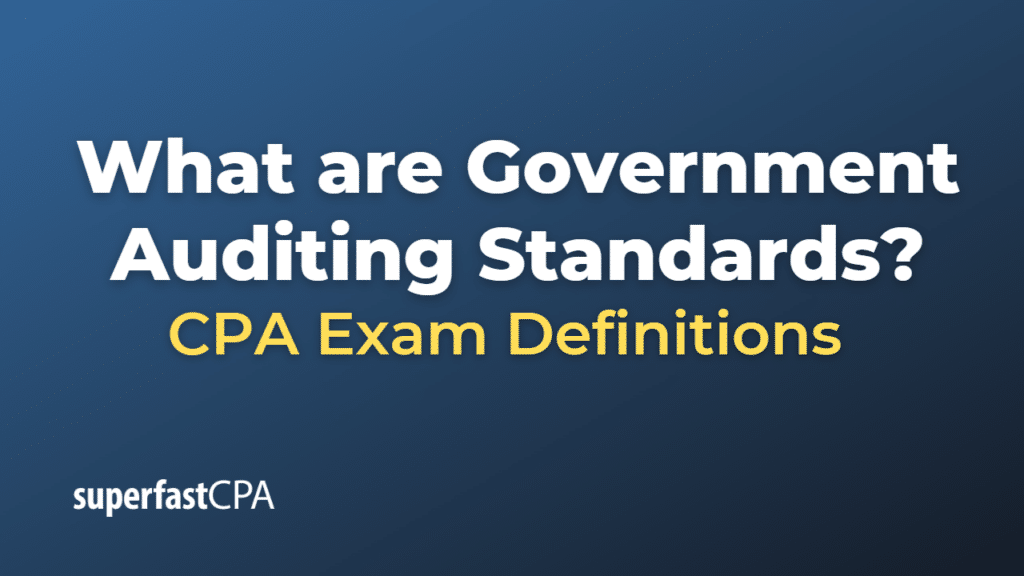Government Auditing Standards
Government Auditing Standards, also known as the Yellow Book, are a set of guidelines issued by the Government Accountability Office (GAO) in the United States. These standards provide a framework for conducting high-quality audits with competence, integrity, objectivity, and independence.
The Yellow Book is designed for auditors of government entities, entities that receive government awards, and other organizations performing Yellow Book audits. It outlines the requirements for audit reports, professional qualifications for auditors, and audit organization quality control.
The standards cover various types of audits, including financial audits, performance audits, and attestation engagements. Here’s a brief description of each:
- Financial Audits: These audits provide an opinion on whether an entity’s financial statements are presented fairly in all material respects in conformity with generally accepted accounting principles (GAAP). They also include audits of internal controls over financial reporting.
- Performance Audits: These audits provide findings or conclusions based on an evaluation of sufficient, appropriate evidence against criteria. Performance audits provide objective analysis to assist management and those charged with governance and oversight in improving program performance and operations, reducing costs, facilitating decision making, and contributing to public accountability.
- Attestation Engagements: These engagements include examinations, reviews, and agreed-upon procedures reports on a subject matter, or an assertion about a subject matter, which is the responsibility of another party.
The Yellow Book standards help ensure that government audits are conducted in a consistent, professional manner and that the resulting audit reports are reliable, credible, and useful for users such as lawmakers, government leaders, and the public. As such, they are an essential tool in promoting transparency and accountability in government operations.
Example of Government Auditing Standards
Let’s consider a scenario where a city government has received federal funding to improve its infrastructure, particularly for a major road construction project. The government needs to ensure these funds are used properly and for the purpose intended.
Here’s how Government Auditing Standards would apply:
- Selection of the Audit Firm: The city government would select an audit firm that follows the Yellow Book, or Government Auditing Standards. The audit team must possess the required professional qualifications, including adequate experience in governmental auditing, and must ensure its work is independent and free from any conflicts of interest.
- Planning and Performing the Audit: The auditors would plan and perform the audit to obtain reasonable assurance about whether the financial statements of the project are free from material misstatement, whether from error or fraud. They would review the city government’s internal controls over the federal funds and test compliance with laws and regulations associated with the funding.
- Audit Report: Following their investigation, the auditors would issue a report. If the funds were used properly and the financial statements are presented fairly, the auditors would provide an unmodified (or “clean”) opinion. If there were problems, such as significant non-compliance with laws and regulations or misstatements in the financial statements, these would be reported as findings. The audit report would follow the format required by the Yellow Book, and would be designed to provide a clear understanding of the scope of the audit and the findings.
- Review by Oversight Bodies and the Public: The audit report would then be available for review by federal and city oversight bodies, lawmakers, and the public. The purpose is to ensure accountability and transparency in how taxpayer dollars are spent.
This is a simplified example. Actual governmental audits can be complex and may include other types of audits such as performance audits, which evaluate the efficiency and effectiveness of government programs or operations.













